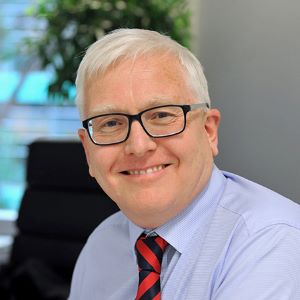Low profit margins in the construction industry are not enough to invest in the future. Investment and change are needed, says one industry leader in the consultancy and engineering sector.
Striving to adopt a more reasonable 5% profit margin would help the industry build better client relationships, deliver higher quality projects, spread risk more equally and invest positively for the future, according to Geoff Hunt, Arup’s chief operating officer for UK, India, Middle East and Africa.
As a key leader in the consultancy and engineering sector, Hunt’s call for the industry to strive for a standard 5% profit margin to help ensure a positive future for both the industry and clients alike is welcome.
Construction can hit the headlines for all the wrong reasons, with high-profile budget issues and contractor failures all adding fuel to the fire in recent months and years. But ACE board member Geoff Hunt is confident that the industry can seize the initiative by offering realistic solutions to future client expectations, thereby ensuring better outcomes for both future delivery outcomes and investment.
“The industry can occasionally appear to be flawed and not capable of designing or building anything either on budget or on time,” said Hunt. “And that’s palpably not the case. We all know of - and are proud of -projects that are delivered on time, to budget and which deliver great value to our clients’ business. However, the industry and its clients are at the point in time when change is necessary, driven by the realisation that very low profit margins in the construction industry and in some areas of consultancy are not enough to invest in the future,” he said.
 Geoff Hunt, chief operating officer for Arup.
Geoff Hunt, chief operating officer for Arup.
Describing current low profit margins throughout the industry, Hunt said: “You can’t do much with 1% profit. That barely covers enough to replenish your reserves. You can’t invest on the basis of that and you can only make an investment if you make a reasonable profit,” he said.
Falling victim to increased risk burdens is one reason why businesses get into trouble. “One of the reasons businesses fail is that they do not or cannot price risk properly and have insufficient opportunity to benefit from an upside,” said Hunt. “That sounds obvious and has been the case forever, but I think we’re at a point where we cannot and should not ignore it any further,” he said. “Moving forward, those risks should not get passed down to the contractor and supply chain, without a more balanced approach to risk and reward, as the contractors may have limited means of mitigating the risk to their business if they materialise,” Hunt said.
"The industry and its clients are at the point in time where change is necessary, driven by the realisation that very low profit margins in the construction industry and some areas of consultancy are not enough to invest in the future."
Geoff Hunt, chief operating officer, Arup
When things go wrong, the industry can often find itself in lengthy, hostile and expensive disputes, a situation that the sector has experienced for years. “Everyone suffers from that, clients included,” Hunt said. “And the time and costs of dealing with disputes can be extensive. If you totted that up across the industry it would be very significant,” he said.
Determined to make a positive change, Hunt is currently playing a leading role in industry discussions to map a clear way ahead. “ACE and other organisations across the industry are currently talking about more equitable risk allocation and proper recognition and rewards for the risks that you take. And part of that is an understanding that the industry needs more money to be able to invest in itself,” said Hunt.
“That self-investment has to come from profit; it can’t come from anywhere else. And if companies are expected to invest in the future then it needs to come from good solid predictable margins, rather than what can be an uncertain trajectory of making losses one year and making wafer thin margins the next. You can’t invest on that basis,” he said.
“And for that, there has to be more profit that is capable of being earned in the industry. That would lead to less disputes, higher quality, better predictability, and better long-term outcomes for stakeholders, owners, operators, users and funders. It might also help the industry attract the new skills we need,” said Hunt.
Looking to the future, Hunt said: “There’s a discussion piece we need to accelerate around how would we help a client or project funder accept the environment where more profit can be earned and the industry has more predictable outcomes. For that added certainty of outcome, clients can hold us to account for long-term and whole-life value-driven contracts, so long as there is a real opportunity for upside benefit as well as risk taking.
“Would that really make the project unaffordable from the client’s perspective? Potentially not, if it avoids downstream dispute and also avoids the risk that the output of the project does not deliver the actual aims and targeted outcomes - that needs a much longer term view of how value is delivered and that’s what our industry has started to discuss,” said Hunt.
Hunt’s comments are straight and to the point. They certainly deserve further discussion by an industry that is currently examining its working relationships with all its stakeholders and considering new business models in the face of technological change. The status quo is clearly not an option.

